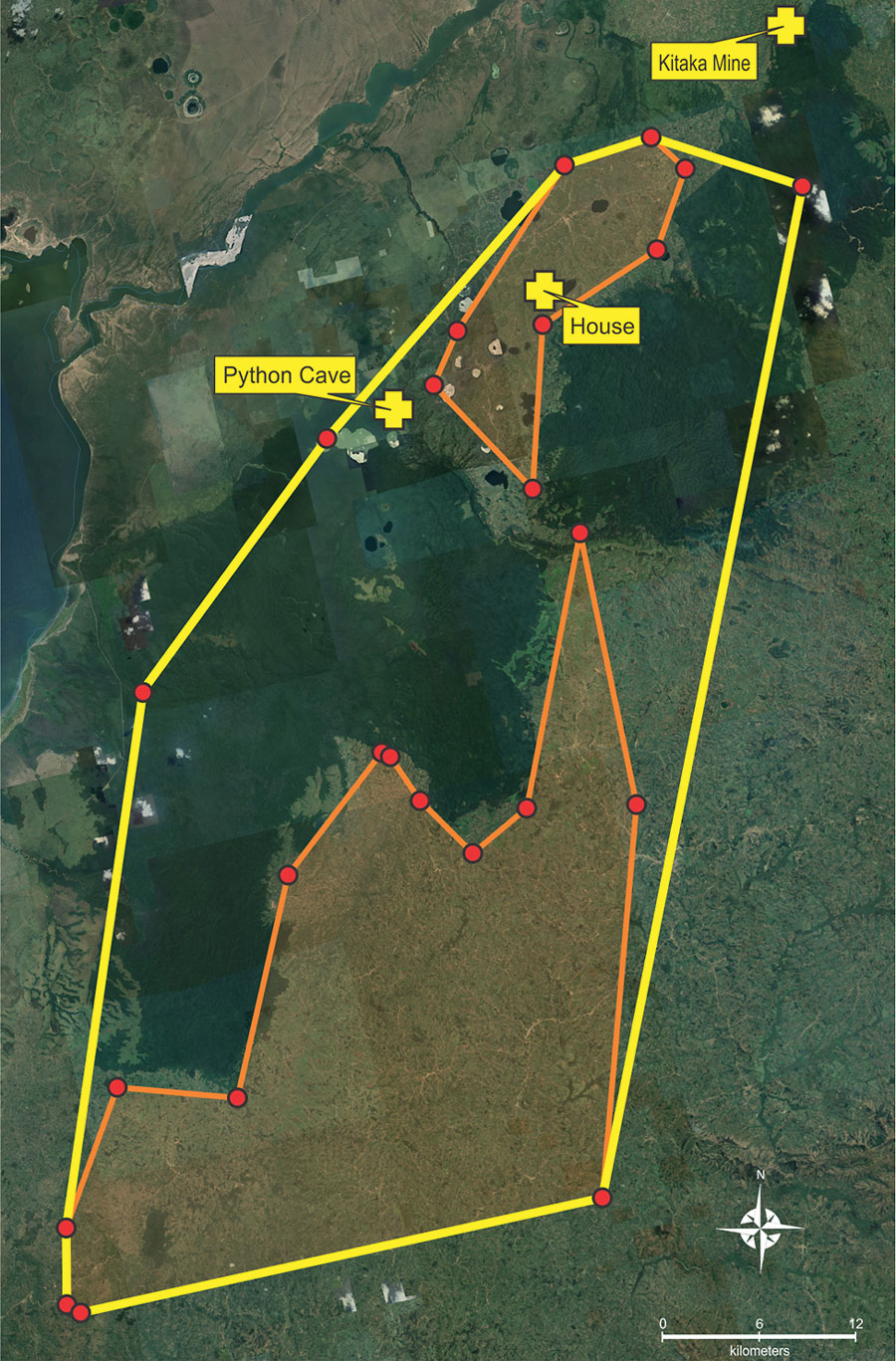Volume 29, Number 11—November 2023
Research
Micro‒Global Positioning Systems for Identifying Nightly Opportunities for Marburg Virus Spillover to Humans by Egyptian Rousette Bats
Figure 5

Figure 5. Minimum convex polygons (MCP) of Egyptian rousette bat (Rousettus aegyptiacus) total forage area, southwest Uganda, February and August 2022. Yellow lines indicate MCP of forage area overall (1,887 km2); orange lines indicate MCP of forage area in agricultural communities (846 km2). Red dots for all MCPs indicate the outermost peripheral sites where the bats fitted with micro‒global positioning system units foraged for >30 minutes. MCPs are shown in relation to Python Cave, where the Egyptian rousette bats roost and were fitted with the micro‒global positioning system; the house visited by bat MV19; and Kitaka Mine, the site of a 2007 Marburg virus outbreak.
Page created: September 12, 2023
Page updated: October 23, 2023
Page reviewed: October 23, 2023
The conclusions, findings, and opinions expressed by authors contributing to this journal do not necessarily reflect the official position of the U.S. Department of Health and Human Services, the Public Health Service, the Centers for Disease Control and Prevention, or the authors' affiliated institutions. Use of trade names is for identification only and does not imply endorsement by any of the groups named above.